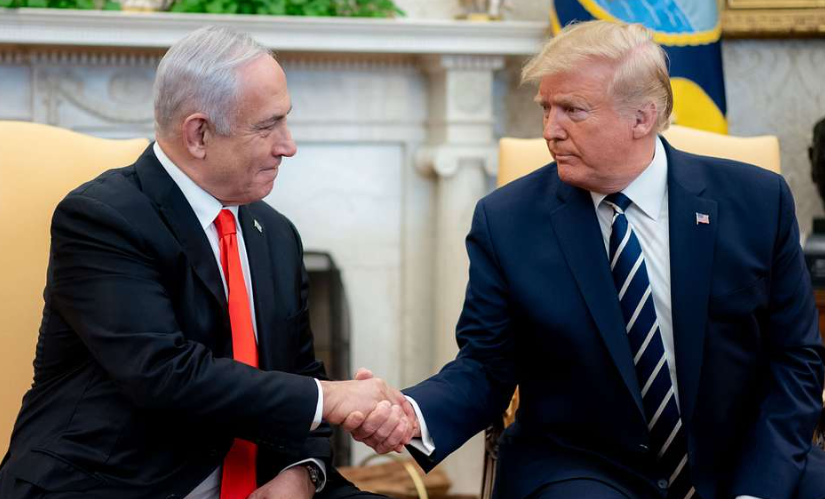US President Donald Trump’s actions in the Middle East have raised eyebrows, particularly in Israel. Despite anger from Israeli leadership, Trump’s foreign policy decisions may, in fact, serve Israel’s long-term interests, offering a reminder of how Netanyahu is often forced to follow the US President’s lead.
A Shift in Middle East Diplomacy
In recent months, President Donald Trump’s moves have sparked significant concern within Israel. From the announcement of negotiations with Iran to the surprise agreement with the Houthis in Yemen, many Israeli officials feel sidelined. For Prime Minister Benjamin Netanyahu, who has long pushed for a more hardline stance against Iran, these developments are anything but welcomed.
One of the most notable moments occurred during Netanyahu’s latest visit to the White House. Trump, much to Israel’s surprise, publicly announced that the US would resume negotiations with Iran. This move directly undermined Netanyahu’s preference for a military solution to Iran’s nuclear ambitions, which has been a cornerstone of Israeli security policy. The Israeli government, which had hoped for stronger measures to counter Iran, found itself at odds with the US approach.
However, this decision might not be the blow it seems to be. While Netanyahu’s administration has often portrayed itself as the leader of the regional anti-Iran coalition, Trump’s willingness to engage diplomatically could be just what Israel needs to prevent a larger-scale conflict in the region.

Trump’s Stance on Yemen: A Game Changer?
Another key development was Trump’s surprise agreement with the Houthis in Yemen. The US and the Houthis reached a deal that would end attacks on ships in the Red Sea, offering a potential reduction in tensions in a strategically important area. However, there was a glaring omission: this deal did not prevent the Houthis from continuing to target Israel with drones and missiles.
To Israeli officials, this may seem like a failure to protect their interests. However, the US’s willingness to negotiate with such groups, while not directly serving Israel’s security, could be a reminder that Israel does not always get to dictate the US’s approach. Trump’s actions may force Israel to reevaluate its role in the region.
Still, there are some that argue these developments should not be viewed in isolation. Trump’s recent moves, while disappointing on the surface, may actually be nudging Israel towards a new and perhaps more pragmatic approach in the Middle East.
Does Israel Have More to Gain from Trump’s Approach?
It’s clear that Netanyahu and his government are not thrilled with some of Trump’s recent decisions. However, in the grander scheme of things, Israel might actually benefit from Trump’s more unpredictable approach. The US President’s willingness to step outside of traditional diplomatic norms could give Israel the flexibility it needs to maneuver in a region that is anything but predictable.
For instance, the resumption of talks with Iran could allow Israel to recalibrate its own strategy. Instead of being locked into a confrontational stance with Tehran, Israel might be able to engage in more diplomatic discussions or even focus on strengthening regional alliances with Arab nations who are also wary of Iranian influence.
By forcing Israel into a more reactive position, Trump may be providing Netanyahu and his government with a push to consider options that may have seemed too risky before, like pursuing a broader regional peace initiative. After all, Israel’s long-term security may depend less on its ability to confront Iran directly and more on fostering relationships with other nations in the region.
The Relationship Between Trump and Netanyahu: A Constant Tug-of-War
The relationship between Trump and Netanyahu has been characterized by mutual admiration, but it’s also one of constant tension. Trump has often been seen as an unpredictable force, and Netanyahu has had to navigate that unpredictability with care. Whether it’s on issues of Iran, Syria, or Palestine, Israel’s government has frequently found itself needing to adjust its policies to accommodate Trump’s ever-shifting priorities.
It’s not just about Iran or Yemen. Trump’s policies in the broader Middle East, from his stance on Saudi Arabia to his recognition of Jerusalem as Israel’s capital, have tested Israel’s ability to maintain its own diplomatic agenda. Even when Trump’s moves align with Israeli interests, such as recognizing Jerusalem, they also bring unintended consequences that force Israel to reconsider its next steps.
Perhaps the most significant challenge Israel faces is not simply dealing with Trump’s decisions but accepting that it no longer enjoys the same level of sway over the US that it once did. In recent years, Netanyahu has frequently relied on the US as a powerful ally in international forums, but the relationship is no longer one of complete alignment. As Trump’s administration continues to shift its focus, Israel will need to adjust accordingly.
What Lies Ahead: A Changing Dynamic for Israel?
While Trump’s foreign policy has caused frustration in Israel, it also presents an opportunity for the country to redefine its strategy in the Middle East. Netanyahu may not always agree with Trump’s methods, but the changing nature of US foreign policy could push Israel toward new diplomatic avenues.
In the end, Trump’s decisions, though often seen as disruptive, may ultimately benefit Israel. By forcing Israel to reevaluate its foreign policy options and look for new allies, Trump might be helping to secure a more sustainable and long-term peace in the region.
